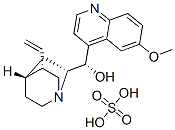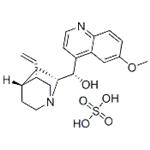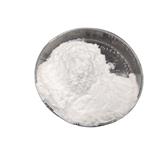Quinine, an extremely bitter substance, has been used by millions of malaria sufferers. In recent times, it has been employed successfully to treat chloroquine-resistant strains of P. falciparum but it frequently fails to provide a complete cure of the infection.
ChEBI: A organic sulfate salt obtained from guanethidine and sulfuric acid in a 2:1 ratio.
World Health Organization (WHO)
Quinine is an important drug in the treatment of multi- drugresistant
forms of malaria. Its use in nocturnal leg muscle cramps, a benign and
self-limiting condition, is connected with unjustified risks. Quinine is listed in the
WHO Model List of Essential Drugs for treatment of malaria.
Human poison by ingestion. Human systemic effects by ingestion: acuity changes, blood agranulocytosis, fibrous hepatitis, flaccid paralysis without anesthesia, motor activity changes, mydriasis (pupillary dilation), nausea or vomiting, tinnitus, visual field changes. Experimental reproductive effects. Mutation data reported. When heated to decomposition it emits very toxic fumes of SO, and NO,. See also QUININE.
Crystallise it from water and dry it at 110o. [Beilstein 23 H 522, 23 I 168, 23 II 420, 23 III/IV 3269, 23 V 396.]



